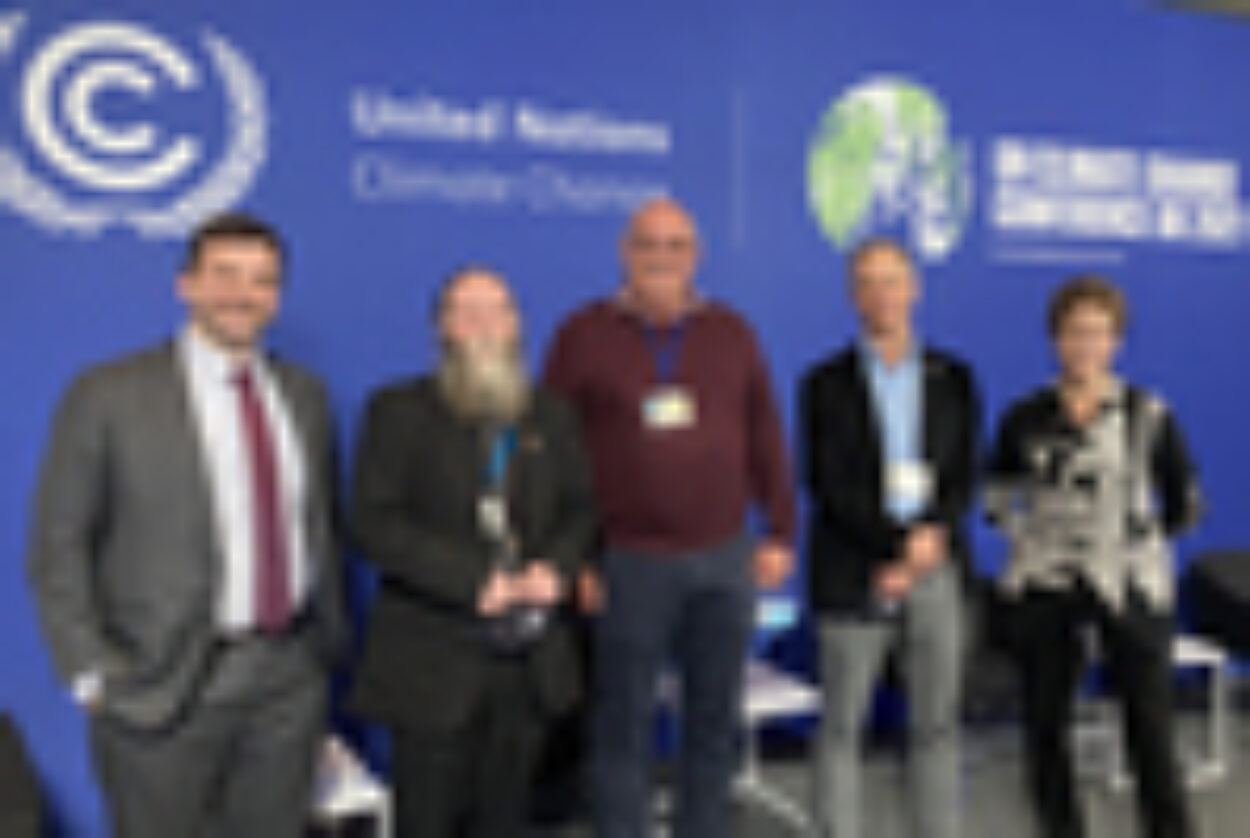Food systems around the world are increasingly at risk from the impacts of climate change. At the same time, these systems, which include all activities from food production to consumption and food waste, are responsible for about one-third of the human-caused greenhouse gas emissions warming the planet.
To drive research-based innovation that will make food systems more resilient and sustainable, MIT’s Abdul Latif Jameel Water and Food Systems Lab (J-WAFS) announced the launch of a new initiative at an event during the UN Climate Change Conference in Glasgow, Scotland, last week. The initiative, called the Food and Climate Systems Transformation (FACT) Alliance, will better connect researchers to farmers, food businesses, policymakers, and other food systems stakeholders around the world.
“Time is not on our side,” says Greg Sixt, the director of the FACT Alliance and research manager for food and climate systems at J-WAFS. “To date, the research community hasn’t delivered actionable solutions quickly enough or in the policy-relevant form needed if time-critical changes are to be made to our food systems. The FACT Alliance aims to change this.”
Why, in fact, do our food systems need transformation?
At COP26 (which stands for “conference of the parties” to the UN Framework Convention on Climate Change, being held for the 26th time this year), a number of countries have pledged to end deforestation, reduce methane emissions, and cease public financing of coal power. In his keynote address at the FACT Alliance event, Professor Pete Smith of the University of Aberdeen, an alliance member institution, noted that food and agriculture also need to be addressed because “there’s an interaction between climate change and the food system.”
The UN Intergovernmental Panel on Climate Change warns that a two-degree Celsius increase in average global temperature over preindustrial levels could trigger a worldwide food crisis, and emissions from food systems alone could push us past the two-degree mark even if energy-related emissions could be zeroed out.
Smith said dramatic and rapid transformations are needed to deliver safe, nutritious food for all, with reduced environmental impact and increased resilience to climate change. With a global network of leading research institutions and collaborating stakeholder organizations, the FACT Alliance aims to facilitate new, solutions-oriented research for addressing the most challenging aspects of food systems in the era of climate change.
How the FACT Alliance works
Central to the work of the FACT Alliance is the development of new methodologies for aligning data across scales and food systems components, improving data access, integrating research across the diverse disciplines that address aspects of food systems, making stakeholders partners in the research process, and assessing impact in the context of complex and interconnected food and climate systems.
The FACT Alliance will conduct what’s known as “convergence research,” which meets complex problems with approaches that embody deep integration across disciplines. This kind of research calls for close association with the stakeholders who both make decisions and are directly affected by how food systems work, be they farmers, extension services (i.e., agricultural advisories), policymakers, international aid organizations, consumers, or others. By inviting stakeholders and collaborators to be part of the research process, the FACT Alliance allows for engagement at the scale, geography, and scope that is most relevant to the needs of each, integrating global and local teams to achieve better outcomes.
“Doing research in isolation of all the stakeholders and in isolation of the goals that we want to achieve will not deliver the transformation that we need,” said Smith. “The problem is too big for us to solve in isolation, and we need broad alliances to tackle the issue, and that’s why we developed the FACT Alliance.”
Members and collaborators
Led by MIT’s J-WAFS, the FACT Alliance is currently made up of 16 core members and an associated network of collaborating stakeholder organizations.
“As the central convener of MIT research on food systems, J-WAFS catalyzes collaboration across disciplines,” says Maria Zuber, vice president for research at MIT. “Now, by bringing together a world-class group of research institutions and stakeholders from key sectors, the FACT Alliance aims to advance research that will help alleviate climate impacts on food systems and mitigate food system impacts on climate.”
J-WAFS co-hosted the COP26 event “Bridging the Science-Policy Gap for Impactful, Demand-Driven Food Systems Innovation” with Columbia University, the American University of Beirut, and the CGIAR research program Climate Change, Agriculture and Food Security (CCAFS). The event featured a panel discussion with several FACT Alliance members and the UK Foreign, Commonwealth and Development Office (FCDO).
